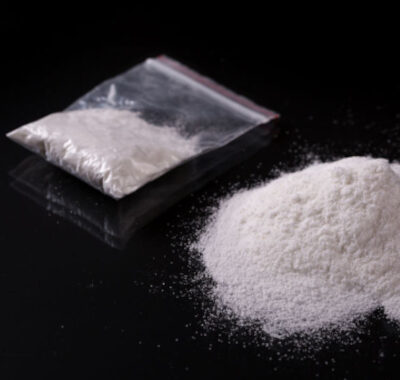
What Is a Stimulant? Uses, Side Effects, Withdrawal Symptoms, and More
There are many different types of drugs out there, some illicit and many that are available by prescription. Unfortunately, many people do not know the difference between the different types of drugs, and that can make it difficult to know what to expect when a drug is taken, even if it is a prescribed medication. Even if a drug is in a particular classification, it can have its own side effects and benefits, so having a basic understanding of what drug classifications are can go a long way in being able to manage medication and taking drugs responsibly.
Elite Home Detox knows that it can be difficult to know what kind of drug you are taking and its effects. That’s why we aim to give all our clients the information they need to use drugs responsibly, and we are also there to help if someone needs a detox. In this post, we will look at the classification of drugs known as stimulants, what they are used for, some drugs that are considered stimulants and their side effects, withdrawal symptoms and timeline, and how to get help if you or you or someone you know becomes addicted.
Table of Contents:
What is a stimulant?
Stimulants are one of the most diverse categories of drugs as it consists of prescription medications, over-the-counter medications, illicit drugs, and common everyday substances. The range of stimulants includes allergy medication that contains amphetamines, nicotine, Adderall and Ritalin, MDMA (Ecstasy), cocaine, and caffeine.
The technical definition labels a stimulant as a substance that activates the and other parts of the body and increases the activity in those areas. The substances may also evoke feelings of pleasure, excitement, invigoration, or euphoria.

Uses and effects of stimulants
Due to the sheer number of types of stimulants, the uses and effects can be far-reaching.
Over the counter medications
Stimulants are contained in a number of different over-the-counter medications and supplements for a whole range of different uses. Many antihistamine and allergy products contain a stimulant to help them work.
Over-the-counter supplements that promote weight loss or energy are also known to contain different forms of stimulants.
Prescribed medication
Many prescribed medications are in the category of stimulants. For instance, most medications that treat ADHD are, in fact, stimulants designed to interact with the brain and restore the production of dopamine to promote focus and concentration.
Similarly, medications designed to control sleep disorders such as narcolepsy contain some form of stimulant in them as well.
Everyday food and drink
The most popular and most consumed stimulant in the world is contained in many foods and drinks that we consume every day. The stimulant that is found in many foods and beverages, specifically coffee, is known as caffeine. It brings a feeling of being awake and alert.
While some studies show that caffeine is addictive, it is so widely available and widely used that information is disputed as to whether it is truly addictive and has the same harmful effects as other stimulants.
Illicit substances
The final category of stimulants is the ones that most people are aware of to some degree, Ambien like cocaine and crystal meth, as well as “speed” and other forms. Cocaine, in particular, has been around for hundreds of years in some form or other and was once widely used for medicinal purposes before becoming illegal due to its addictive nature of the drug.
Addictive potential of stimulants and how they interact with the body
The main principle behind why stimulants are so addictive is due to the fact that they interact with the body in a way that changes the chemistry of the body. Particularly because they interact with both the brain and central nervous system, both of these parts of the body are vital to the normal function of organs, cells, and tissues, but once they are exposed to stimulants, that begins to change.
Many stimulants produce positive effects that people enjoy, which is the primary reason they continue using the various substances beyond what is prescribed or what is safe. Even the more illicit substances provide some sort of benefits such as appetite suppression, increased energy and concentration, and even mood-altering effects.
Even the most benign of stimulants alter the chemistry of the body in some way, and over time this causes the body to need that substance to function normally.

This is basically what people know as having cravings for a drug, the body telling them they need it in order to feel “normal.” This is the precursor to full-blown addiction
How does withdrawal work with stimulants?
Withdrawal can be tricky with stimulants because of how wide a range of substances they cover. Compared to a category of drugs like Opioids, which only covers one type of medication, stimulants are so broad that the withdrawal effects and timeline can vary greatly.
It is also important to take into account the history of use for the individual as well as health and environmental factors.
In some cases, the stimulant is short-acting and can cause symptoms like anxiety, depression, fatigue, increased heart rate, sweating, and vomiting and may only last a few days. Other more potent or long-lasting stimulants can cause more diverse effects such as tremors, seizures, hallucinations, and even full-blown psychosis. The longer-lasting stimulants can take days for the withdrawal to start and weeks or even months for the effects to fully cease.
It is never advisable to quit using stimulants “cold turkey” as this can magnify the effects of withdrawal and lead to even more severe health consequences, especially if unmonitored.
How Elite Home Detox can help
If you or someone you know is suffering from stimulant addiction, then the first thing to do is get them professional help to detox. Elite Home Detox brings all the treatment of a rehab center into the privacy and security of your home.
EHD Can Help You Through The Withdrawal Process
Elite Home Detox is here for you if you need help withdrawing from stimulants. We can provide you with the one-on-one care you need while going through detoxification and withdrawal symptoms caused by addiction. And best of all, we come to you! You can make a full and lasting recovery in the comfort of your home with the help of our expert medical team. Contact us today to learn more.


